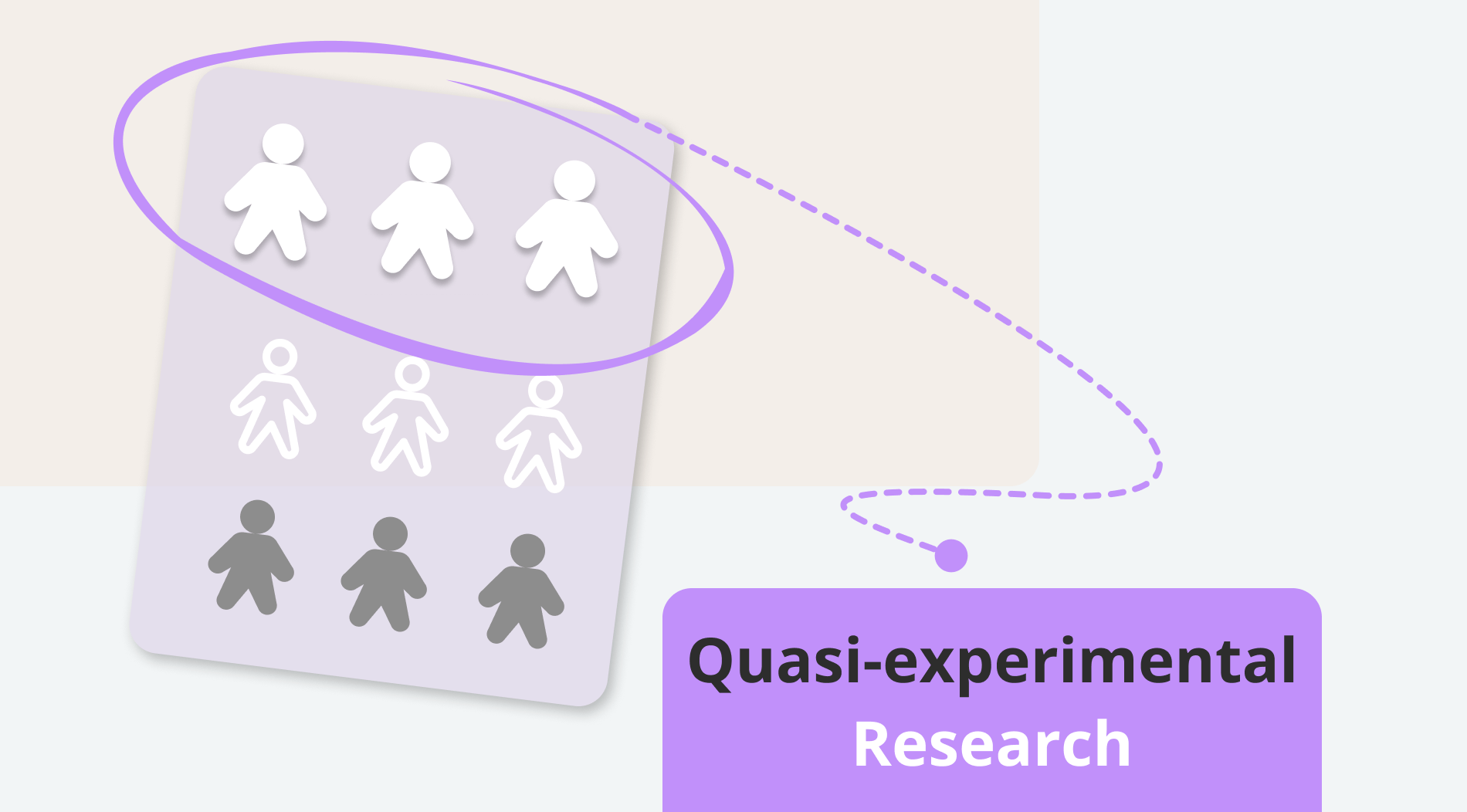07- QUASI-EXPERIMENTAL RESEARCH
07- QUASI-EXPERIMENTAL RESEARCH
Definition
Quasi-experimental research is a type of study that follows tests in which the independent variable is manipulated and the groups for the experiments are chosen intentionally. This reduces the credibility of the independent variable being the cause of the incident as it suggests the hypothesis needs accurate manipulation of the elements to achieve a desired outcome. As the sample is selected according to facets, the design is called non-equivalent, for the groups do not have the same probability to be formed with whichever member of the population.
Characteristics
- The independent variable is manipulated.
- The sample for the experiment is selected by design.
- Their use is mostly seen in social research.
- It cannot declare the causation of a general problem but a very specific one.
Main uses
* The feasibility of educational methods in small classrooms to check their impact on student grades
* In determining sociopolitical forecasts during electoral campaigns
* Application in psychiatry to solve mental illness and syndromes
* Testing the acceptance rate of brand-new products with distinguished clients
Advantages and disadvantages
Pros:
* Corroboration to determine if the independent variable produces a certain result in a sample is easier to establish.
* If there are ethical reasons why specific participants cannot be chosen to enter the test, they can be replaced without delay.
* It is less expensive and time-consuming than randomized controlled trials.
* The researcher can gather real-life information because the study is implemented in reduced groups or even individuals.
Cons:
* It takes extra time to choose the groups to apply the variables.
* Researchers cannot prevent other elements from reshaping the outcome of the experiment.
* The results are prone to be biased.
* It demands various equally-separated observations to make sure the series of outcomes is consistent under the circumstances.
References:
Schweizer, M., Braun, B., Milstone, A. (2016). Infection Control & Hospital Epidemiology. Research Methods in Healthcare Epidemiology and Antimicrobial Stewardship – Quasi-Experimental Designs (pp. 1135-1140). Cambridge, United Kingdom: Cambridge University Press.




Comments
Post a Comment